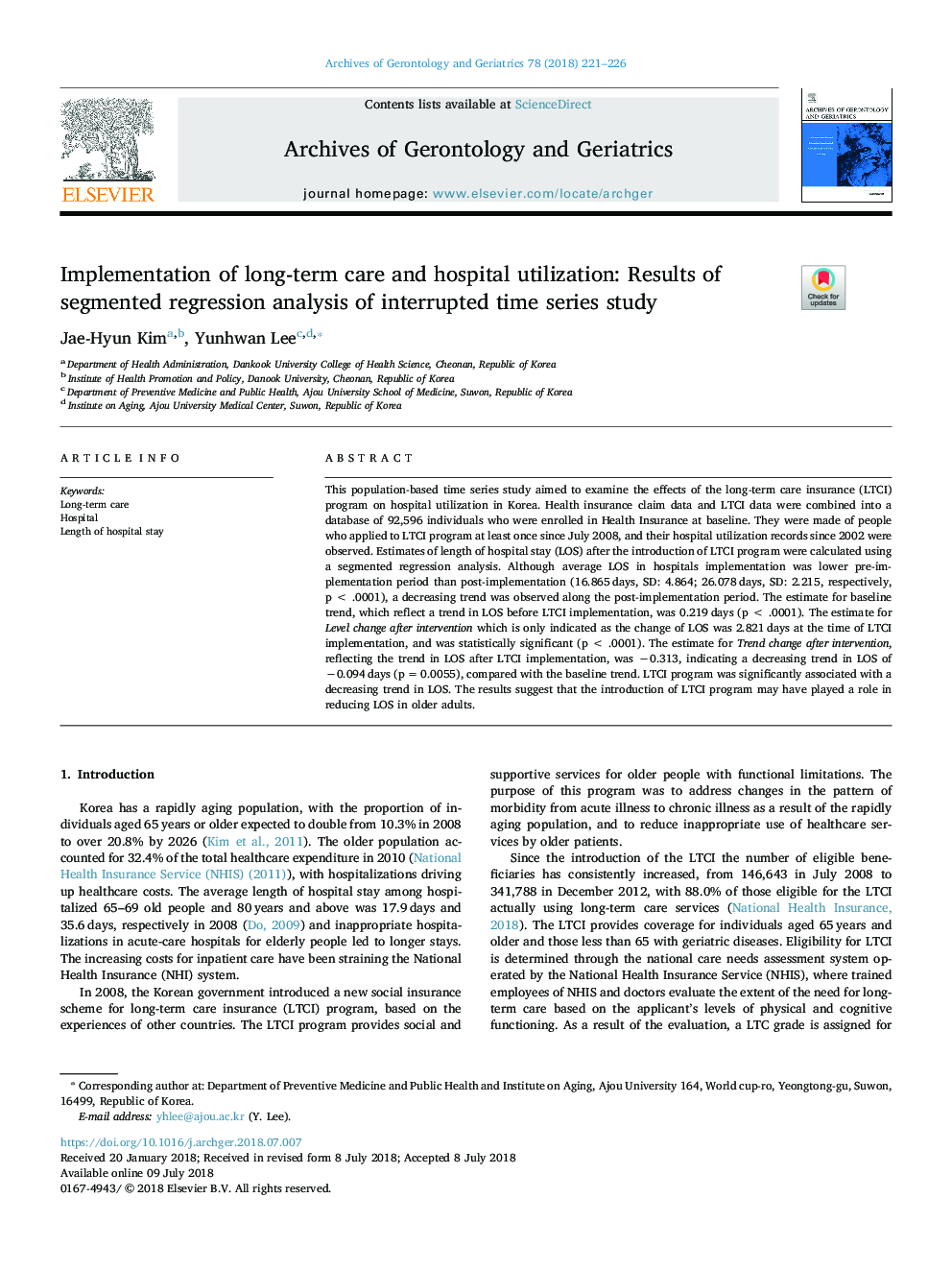| Article ID | Journal | Published Year | Pages | File Type |
|---|---|---|---|---|
| 8257414 | Archives of Gerontology and Geriatrics | 2018 | 6 Pages |
Abstract
This population-based time series study aimed to examine the effects of the long-term care insurance (LTCI) program on hospital utilization in Korea. Health insurance claim data and LTCI data were combined into a database of 92,596 individuals who were enrolled in Health Insurance at baseline. They were made of people who applied to LTCI program at least once since July 2008, and their hospital utilization records since 2002 were observed. Estimates of length of hospital stay (LOS) after the introduction of LTCI program were calculated using a segmented regression analysis. Although average LOS in hospitals implementation was lower pre-implementation period than post-implementation (16.865â¯days, SD: 4.864; 26.078â¯days, SD: 2.215, respectively, pâ¯<â¯.0001), a decreasing trend was observed along the post-implementation period. The estimate for baseline trend, which reflect a trend in LOS before LTCI implementation, was 0.219â¯days (pâ¯<â¯.0001). The estimate for Level change after intervention which is only indicated as the change of LOS was 2.821â¯days at the time of LTCI implementation, and was statistically significant (pâ¯<â¯.0001). The estimate for Trend change after intervention, reflecting the trend in LOS after LTCI implementation, was â0.313, indicating a decreasing trend in LOS of â0.094â¯days (pâ¯=â¯0.0055), compared with the baseline trend. LTCI program was significantly associated with a decreasing trend in LOS. The results suggest that the introduction of LTCI program may have played a role in reducing LOS in older adults.
Related Topics
Life Sciences
Biochemistry, Genetics and Molecular Biology
Ageing
Authors
Jae-Hyun Kim, Yunhwan Lee,
